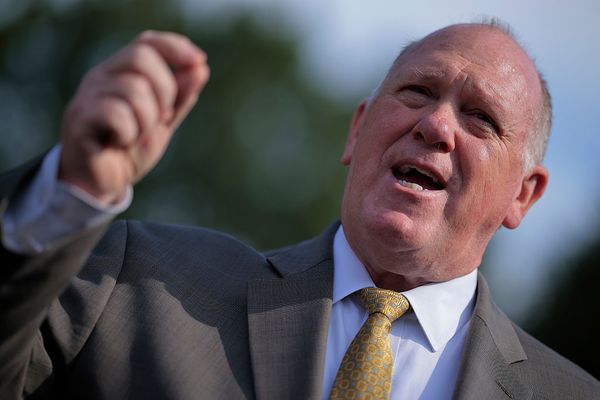
Title: US Presidential Candidate Stresses Tough Stance on Iran Amidst Growing Tensions
As the US presidential election draws near, foreign policy and the nation's approach towards Iran continue to be key topics of discussion. One candidate, who recently addressed these concerns, emphasized the need for a strong and steadfast approach to dealing with the Iranian regime.
During a public event, the candidate acknowledged the long-standing animosity between Iran and the United States, tracing it back to 1979 when the Ayatollah came to power. Since then, the Iranian government has regarded America as the 'great Satan.' The candidate highlighted the devastating actions committed by Iran, such as the 1983 Beirut bombing by Hezbollah, a group backed and financed by the Iranian regime, which claimed the lives of 240 American service members.
Having experienced the impact of Iranian-backed Shia militias during their time in Iraq, the candidate expressed personal knowledge of the threat posed by Iran. Hundreds, if not thousands, of US troops lost their lives as a result of these militias. Drawing from this experience, the candidate argued for a comprehensive strategy to combat Iranian influence in the region.
The candidate's proposed strategy centers around economic pressure, aiming to restrict Iran's access to resources that could further fuel their malign activities. They criticized the relaxation of sanctions under the current administration, highlighting concerns that the released funds could be used to finance terrorism and destabilize the Middle East further.
Advocating for a more resolute approach, the candidate emphasized the importance of denying Iran financial support, effectively starving the regime of resources. The candidate pledged to utilize every available tool to achieve this goal.
While the candidate asserted the need for a tougher stance on Iran, they did not explicitly state whether they would opt for military action or solely pursue diplomatic channels. Instead, they underscored the significance of tightening the financial screws on the Iranian regime.
The discussion around Iran comes at a time of heightened tensions in the region. Over the past year, tensions between Iran and the United States have escalated due to various factors, including the assassination of an Iranian general and the withdrawal of the United States from an international nuclear deal with Iran.
As the US presidential election approaches, voters will have to weigh the importance of addressing Iran's regional activities and potential threats against larger diplomatic frameworks. Foreign policy decisions concerning Iran will significantly impact the nation's relationships in the Middle East and beyond.







